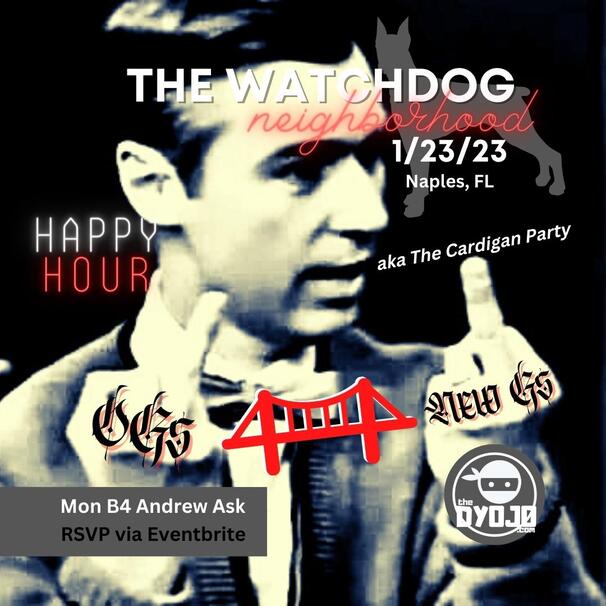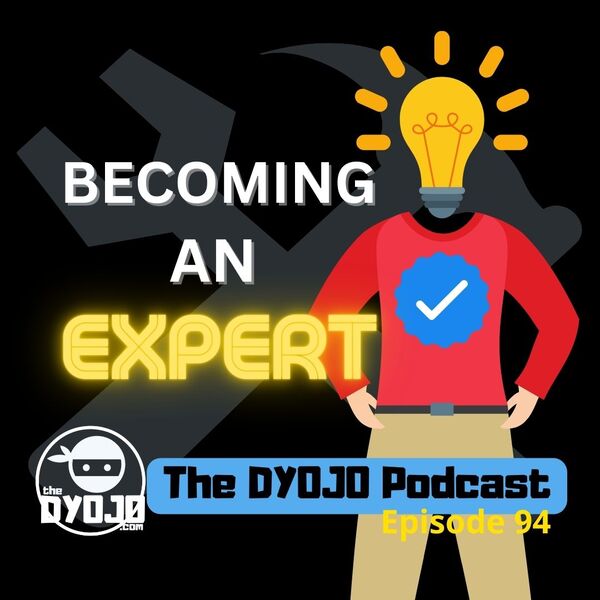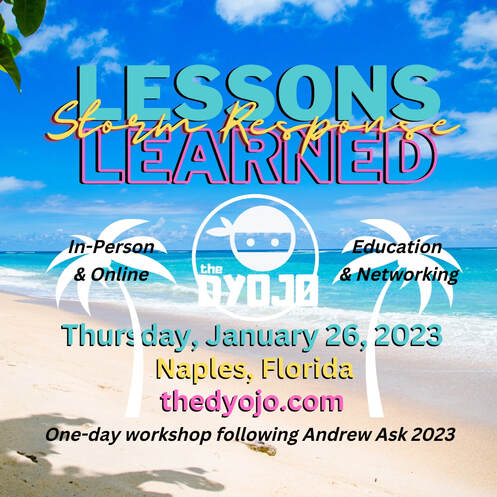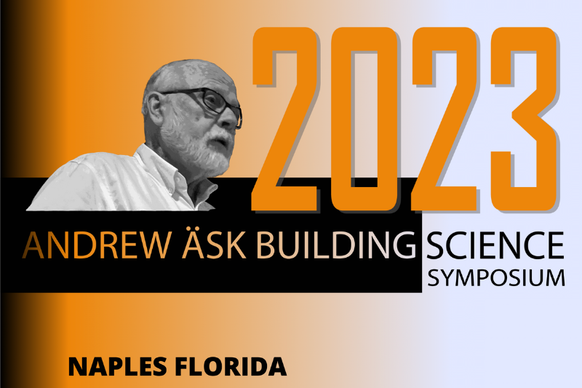|
If someone were to call themselves an industry expert, what would your expectation be of their like credentials and experience? What are you stupid? But yeah, no. We definitely need to get the education up The DYOJO Podcast. There it is. opening salvo. What does it mean to be an expert, an industry expert. And we're live live. Here we are a free podcast, on a free platform, offering ideas for free to those who dare to listen. I'd like to take this opportunity to thank you publicly. If you're watching screen left is The Restoration Lawyer Ed Cross, screen right is Jeff Cross of Cleanfax Magazine. Apparently no relation. Same last name as me but we are not related. As far as we know. This video is The Cost of Doing Business Exclusion Claim by Insurance Adjusters is Fake News. It drops truth. This is Take Five from the ISSA Media YouTube page, definitely check that out. I'd like to take this opportunity to thank you publicly for making a valiant effort to try to get Jon Isaacson to engage in a serious interview. It's a tough thing to do. I don't know. But we're trying. Keep trying and eventually you'll wear him down. That Jon Isaacson that's a whole another topic. I think by now if you've listened to more than one show, hopefully we've gotten a little bit better over time. Yeah, one of the biggest issues early on, was I was interjecting clips, but didn't have a lot of audio control. And even until not that recently, not a lot of great expertise. Oh, that ties into our topic. If someone were to call themselves an industry expert, what would your expectation be? Not a lot of great expertise as I was working out this experiment which delivers content for free, free, free to listeners who ingest and consume it for free. Just by way of reminder and a season of thankfulness. If you're thankful for a podcast, be it our podcast or an industry podcast or any other podcast. One of the best ways you can help people, especially those who are doing it for for free, is to subscribe, like, and rate it. It helps. So the robots think people are listening. Leaving a review can be helpful as well. So I'm gonna read one such review. Solid content funny, but so far, I'm loving the content slash information in the casual conversational approach. But. But, chill out on the soundbite addons. It's funny, until it happens over and over and over and over and over and over and over and over. And like you're unraveling a big cable knit sweater that someone keeps knitting and knitting over and over and over and makes it super frustrating to keep pace with the content. The introduction length is nauseatingly long and overdone. Fix that don't ditch it, just chill out a bit. Keep the humor and the conversation approach five stars. They actually gave it three stars justify implemented their constructive input, then, then it would be five stars. So thank you, HFCFFHJJKFX. Thank you for being so brave. Being the best loser takes talent just as being the best winner does. It's true. It's kind of hard to read this as anything other than if you're like other podcasts, I might listen to it as much as I listen to them. As a contractor, do you ever ask yourself? What are we doing here Harry? Enter an audio visual experience like no other. The DYOJO Podcast, we are helping contractors shorten their dang learning curve. This discussion about expertise included IAQ Josh. Yes. Let's pick up the conversation. As a representative, Pete called out the mold assessors and remediators for not going to things Josh, what do you have to say about that? I mean, I think the latest review that I did on an assessment report live on YouTube. If you didn't catch it, you should over at Youtube.com/IAQJosh. However, I think that speaks volume on the lack of education. What are you stupid? Literally that's what it is. You know. I came up with people like Howard Newmark around me that is just a super analytical dude, and does things like very methodically. And then I've been exposed to even more individuals like that and more in the building science world. But getting back to what you said unfortunately, there's just either a lack of care, or a lack of care is kind of what it just seems to be because the education is there. I mean, what I'm doing on YouTube and what you're doing and I think you wrote a book or two or, but ya know, we definitely needed to get the education up. People just need to be exposed to it. I mean, at the end of the day, again, we can lead the horse to water if they come and they choose to leave that class and not better themselves. That's on them. But at the end of the day, at least, you know, expose yourself to that. There you go. There's the advice from IAQ Josh, everyone expose yourself. You haven't gotten a whole lot of flack on your last video calling out crappy reports? Not at all. I was actually surprised. It's weird when sometimes I've got something that I think might be a little incendiary. And then you put it out and then everyone is like, oh, makes sense. Did you watch anything on the one I did on the contractor down in Texas that's getting sued. I caught bits and pieces. It seemed like there were two sides to it. And you were trying to do your best from the just that I saw to cover both sides of it. Flawless execution of an awkward segue linking us back to a prior episode. You're diving into a case that's RJ Construction versus Arlington Independent School District. An Arlington construction company says it worked around the clock last February to clean up a flooded school. Months later it says it has yet to be paid. Michelle Blevins, C&R Magazine, thank you for asking that question. RJC thinks they're owed over 1.2 million. The school district paid like 187,000. A check that was never cashed. And said there's more if you provide the documentation, we need to justify it. The AISD says they would pay more, but they need more documentation. And it appears they asked for that early on. So it's not like they just did it at the end. But obviously a much more detailed list from the insurance company. But I think I told you, I'm gonna probably incorporate some of your moisture mapping video. In order to know if you are actually drying, you need to know what your environmental conditions are, you need to know what your moisture concentration levels are. These are things that we monitored daily. This is a clip of a video from IAQ Josh's YouTube page Moisture Mapping for Restoration Contractors 101. These are things that the insurance adjuster is going to want you to provide at the end, if you want to get paid. So do yourself, your due diligence and make sure that you've got some level of competence documentation could be something like this could be pen and paper, quite frankly, I don't care how it's done. I just want to see the industry evolve. And this trade gets better and better and better. And ultimately, of course being taken more seriously in some regards. One of the news clips reports the school district is asking for documentation that RJC doesn't says doesn't exist. It's like, uh-oh. This is a podcast about shortening your dang learning curve. That's taking in information from multiple sources. So on this podcast, we've got some of the younger restorers, Josh Winton and myself. We've got Bob Blochinger and Pete Consigli. So we're going to have a conversation about what it means to develop into the expert level. To pursue that and to have that hunger as an industry professional. We also discuss an upcoming event that will provide some additional exposure to training that will kickoff 2023. Mindset change. Hi, everybody out there in DYOJO nation. Infotainment. We will entertain you whilst we also inform you. What you're doing is terrific every day. People should be listening to you. The DYOJO Podcast. What does it take to become an industry expert? I call it a pyramid of training, education and experience. You cannot become an expert without all three. Say it again. Training, experience and education. If you're new in this industry or you're working hard to accelerate your development you may notice there are a lot of industry events. We obviously want to make you aware of one that we're directly involved with, as are the other people in this particular podcast. I'm a big guy for education, I usually go to maybe two or three events a year. Okay, so this is the Andrew Ask Building Science Symposium 2023 (aka Winter Break). This is the climate zone one - climatezoneone.com. That's the the site for there on the homepage and a website. We have a link for registration, I think we have a link for the hotel for the room. And then we have a link that can take you through all the presentations and scheduling, and the bios on all the speakers. Everything that you need is on the website, one simple click. So Tuesday, Wednesday is the Andrew Ask Building Science Symposium. And then Thursdays, Pete is putting a workshop together. I think The DYOJO is now the official, quote unquote, sponsor or promoter, so no one will come. Tuesday, Wednesday, there it is, Andrew Ask, okay. And then whatever you agreed to do with Pete is on Thursday, Okay. Come here and have a lot of fun and gain some education. It's gonna be a very multidisciplinary audience. January 23rd, 24th, 25th and 26th. In today's world, it's scientific. Great networking, great content, the Andrew Ask Building Science Symposium aka the 2023 Winter Break in Naples, Florida. We don't have winter here, we have summer. Remember what they say baby, Be there, or be square. The website is climatezoneone.com and they're packed like seven o'clock till 530 is education time and some good networking. We're having full breakfast and the lunch and all that packed in goo. We'll have good breaks in the morning and afternoon. Climate Zone One is the whole the hot humid southern south of the country. I think the country is broken into five climate zones. We're planning on doing a younger guns get together on Monday, January 23, 2023 in Naples, Florida. We're framing that like Pete Consigli and Cliff Zlotnik as the Watchdogs Neighborhood. We're trying to put an event together where we bring the newer restorers in with older, not older but more experienced restorers. It's a Watchdog Neighborhood or we may call it the Moisture Mob Neighborhood. The consigliere and Clilff Zlotnik and friends. We're doing a cardigan dress code. The abbreviated title is The Cardigan Party, because we're going with the Mr. Rogers Neighborhood vibe. Then maybe at other industry events like RIA we can crash with the cardigans. The audience at the dojo and you guys are the younger the next upcoming generations. What that really is about is the veterans and the old timers who have been around, pass the baton to the next generation. If they want to be mentored, sharing information, just being a resource for them. If the horse doesn't want to come to the water, like Josh said, we'll have good water for them to drink if they don't want to come there and they don't want to drink. We want to give a huge shout out to the sponsors of The DYOJO Podcast. Those organizations also committed to helping you shorten your dang learning curve. First off is the Institute of inspection, cleaning and restoration certification. You know them industry wide as the IICRC. You want full access to all IICRC standards from any device at any time, and in any place. Get a standard subscription for about 50 cents a day. Visit iicrc.org today. Advocate Claim Service LLC, was founded to provide policyholders brokers and attorneys with a dedicated claim professional to develop a comprehensive claim presentation strategy. While ACS does not sell insurance, they make it work. If I want to take the anxiety out of my claim, who should I call? Advocate claim service. ACS's Principal Consultant David Princeton, a friend of the show has resolved disputed claims resulting in tremendous results and also contributes to C&R Magazine's column. Dear David. Anybody who calls himself an expert, like isn't an expert. The second you say, I am an expert. Well, now I don't trust anything you say. Hello, Bob. Bob, Robert. Bob, right? It's Bob, when we're talking. It's Robert, when you send me a check. We're just talking Bob, the difference between like an influencer, an industry leader and an industry expert. If someone were to call themselves an industry expert, what would your expectation be of their credentials and experience be? Expert is somebody who knows what he's talking about through experience, training and education. I call it a pyramid of training, education and experience. You cannot become an expert without all three. I agree with the general consensus going around that to be an expert, you have to know every single thing about every element of everything within that field. An individual that's kind of sought after for the expertise. Whatever questions, or problems or whatever exists that needs explanation or evaluation. The expert needs to know what he's saying and how to explain it so that a regular person can understand. For instance, when you sit in a court on the witness stand and you get grilled by the opposing attorney, you do not have notes in front of you. You do not have a book. You do not have photographs. You have to answer questions in a manner that you come across intelligent. That you understand. We call these competent witnesses subject matter experts. They have to pass the Daubert Challenge. According to the Federal Rules of Evidence 702, a witness who was qualified as an expert by knowledge, skill, experience, training, or education. This is a YouTube video from Forensics Group talking about the Daubert Rule. This rule addresses the knowledge, skill, training, and education of an relevant witness. I like how Bob puts it, "Education, training and experience." Experiences are often one of those key factors that ties all of it together. May testify in the form of an opinion or otherwise, if the experts scientific, technical or other specialized knowledge will help the trier of fact to understand the evidence or to determine a fact in issue. I find this interesting. I'm thankful that Bob brought it up. This is a great metric as it's used in court to determine whether an expert witness and what they have to share is relevant and reliable. A good question to ask, is whether the information that you're receiving from industry leaders, influencers and experts, (a) is it relevant to the task at hand and (b) does it rest on a reliable foundation? That testimony is based on sufficient facts or data. That the testimony is the product of reliable principles and methods. This affirms we want to apply a scientific method or methodology to the processing of information to determining whether it's reliable. The scientific methodology helps us determine:
Does it eliminate confirmation bias? Just because we hypothesize this did we then only present the information that supported our hypothesis rather than actually being open to our hypothesis being wrong? The expert has reliably applied the principles and methods to the facts of the case. The expert has reliably applied the principles and methods of the facts of the case. My mind typically shifts when I'm reading industry publications like C&R magazine or Cleanfax Magazine, towards listening for those people who have been there done that. Those who have assessed a problem, discussed it with their team, and said this is a creative solution that has worked for us. That something works now for a shameless plug. Last week reminded everybody of our article in C&R Magazine - The 4 Modes of Profitability for Contractors. There's an article in the latest edition of Cleanfax Magazine - Goals, Effort and Results: Developing Excellence in Your Team. This article does attempt to apply a scientific method to how we communicate and encourage our teams. The Daubert Standard is the law in federal court and over half of the states. You need to know what you're talking about to be labeled as an expert. And, you know, comically people say, Well, I'm from 50 miles away, so I must be an expert. It doesn't work that way. You don't become an expert without years of training, experience and education. When you're looking for experts is the first place place you look is people that post a lot on Facebook. No. No, you too. It's YouTubers. Those are modern day experts. I had a college that had issues with the carpet installation, and I go there, I was hired by the product manufacturer. And the first thing I asked the installer is, what kind of experience you have in putting down this product? Well, it was especially product with a special installation system that everybody just doesn't know about. So his first comment was Why watch two movies on YouTube? Oh, no. That was a $50,000 hit to the installation company, because they let an amateur put it in. Youtube is good to watch as a reference. It doesn't make you an expert. You have to have certain talent when you're doing trade work. You got to have the talent and the mindset and the patience to do it correctly. We call it a redo; it's a skill. You got to be able to able to fix it so that you can't tell you fixed it. And you got to be able to afford the screw up. I always tell guys to read the label. Read the label. Read the label. It's funny you say that. I mean, that was my big takeaway from your last year we had the Winter Break 2022, The Mold Winter Break. The summary was exactly that. If you're putting this floor in, read the damn label. And make sure you're using the glue that's designed for that floor and you're doing the prep the way the instructions say. Would you say a significant portion of the flooring failures could be avoided by just doing those two things? Absolutely. Some of these guys don't even don't even know there's about a half a dozen different types of tack strip to be used. And each one has a specific purpose. Josh, are you aware that prior to the internet, they used to write books? If you didn't know how to do something you might get this Complete Do-it-yourself guide from Reader's Digest. I'm sure whenever you're going to court you always refer first to Reader's Digest Complete Do It Yourself manual, right? That's the first place to start. It made me think you know, YouTube is a lot easier if I'm not very skilled at working on my vehicle. But that's where I go to try to get an idea but exactly what you're saying that doesn't make you an expert, it just as a starting point. Before YouTube, it was hands on with a slap to the back of your head. What are you stupid? Things of that nature. And that's how we how I learned from my generation. We are excited to announce that our best-selling book How To Suck Less At Estimating: Habits For Better Project Outcomes by Jon Isaacson, The Intentional Restorer, is now available as a course. This book is full color with diagrams and it's a lot more technical than the prior estimating book Be Intentional: Estimating. Which pairs well with the project management book. This book, How to Suck Less at Estimating is also a course available online through our friends at Restoration Technical Institute. We just heard from them that the first person actually purchased the course. So we're looking forward to getting feedback from that. This course has six modules which reflect the six chapters in this book. If you sign up for the course you get a free PDF copy that is designed to to correspond with the course. So in order in order to to talk about where we're at and how we got here, I have to take a step backwards and give a little bit of background. I won't take very long take very long.
Contrary to his promise, it did take pretty long. You may have noticed, as of late, the podcast has been condensed into 24 minute episodes. That's been on purpose. It's allowed me or forced me to try to be more concise and getting the information out. This particular episode is universal in the sense of talking about what it takes to become an expert and Bob and Josh and Pete share some good insights. And I believe in Daubert, we've kind of shared a scientific method for trying to determine that for yourself. But the timely element of this is an event that's happening in January of 2023. Three events:
So Monday night, assuming people are coming in getting situated traveling, we're gonna have a unique event from The DYOJO and Pete Consigli. On Monday the 23rd we have a meet and greet at the Boston Beer Garden which is going to be fabulous. Cliff Zlotnik is going to be there.
This year, has a one time panel that will never happen again called The Pioneer Panel of Building Science. This is Dr. Joe Lstiburek, John Tooley, Neil Moyer, and Gary Nelson. These are four individual guys who are in their own rights are are giants in the area. This is historical, probably one of a kind, likely never to be repeated portion of that event.
So these guys all in their own right to different aspects and they are the Pioneer panel. So that's the Tuesday and Wednesday the 24th and 25th.
The other thing that's going to be under the DYOJO brand is going to be a special post conference workshop on Thursday, the 26th. Cliff Zlotnik, the Z Man, is going to be there, one of the two OG's. He's going to help with the moderating. This is going to be Lessons Learned from Storm Response and Hurricane Recovery. It's a one-day workshop with various speakers. We're gonna have a hurricane panel workshop that's gonna focus on response and recovery from a catastrophic storm. We are going to offer this workshop in-person osite for those that stick around following the building symposium. There will be a zoom option as well. Keep posted via the DYOJO website and The DYOJO Podcast for more information. So this extended version of the podcast is more of the information as we're continuing to continuing to develop both for Andrew Ask and our storm response workshop. What are the lessons learned from storm response and hurricane recovery. So the speaker lineup is going to be pretty awesome.
To me this is the most important thing, that you get a variety of perspectives, you address the particular point of the issue and challenge, and then you you allow the audience to have an interactive questions of things that are general interest to them. Anyone involved with assessing, inspecting, coming up with solutions, dealing with insurance claims, dealing with specialty outside vendors, and how do you interpret the science and a practitioners viewpoint? Attendees will get good education. If you have that it brings people in and then if you put the venue's either through the main events or off site people get together in the conversations in the bars, the restaurants, the things that they do, that's what really is the real value to help grow and develop their business. Develop relationships and do business in the future and I think a lot of that will exist.
0 Comments
Leave a Reply. |
Words
The DYOJO - helping contractors shorten Archives
June 2024
Categories
All
EstimatingMarketingInsurance ClaimsLeadership |
|
| |||||||





 RSS Feed
RSS Feed
